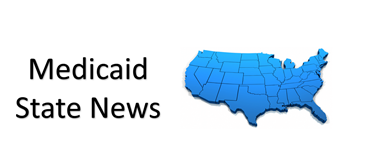About AbbVie
AbbVie’s mission is to discover and deliver innovative medicines that solve serious health issues today and address the medical challenges of tomorrow. We strive to have a remarkable impact on people’s lives across several key therapeutic areas: immunology, oncology, neuroscience, eye care, virology, women’s health and gastroenterology, in addition to products and services across its Allergan Aesthetics portfolio. For more information about AbbVie, please visit us at www.abbvie.com . Follow @abbvie on Twitter , Facebook , Instagram , YouTube and LinkedIn .
I. POSITION SUMMARY:
Responsible for the administration and analysis of State Medicaid contracts including reviewing and validating submissions, processing and paying rebates, and analyzing quarterly utilization and rebate trends and variances. Manages responsibilities in accordance with various state & federal regulations including but not limited to: Section 1927 of the Social Security Act, the Omnibus Budget Reconciliation Act of 1990 and 1993, Section 602 of the Veterans Healthcare Act, and Sarbanes Oxley as well as internal policies and procedures.
II. PRIMARY JOB RESPONSIBILITIES:
- CONTRACT ADMINISTRATION/PROCESS REBATES: Review and analyze all contract fields and evaluate contract language to uphold integrity of the rebate processing system. Manage contract changes such as adding/deleting products. Review and analyze pricing in the contract systems; ensure accurate reimbursement in a timely manner; maintain proper contract files; monitor contract expiration report. Process Medicaid rebate Claims within the systems Medicaid Module for Federal Statutory Programs, State Supplemental, and State Pharmaceutical Assistance Programs (SPAPs). Resolve open disputes with states. Work closely with State personnel, internal customers, and finance and rebate teams. Maintain good customer relations.
- SYSTEM MAINTENANCE: Load/maintain all products, pricing and contract information in the Revitas Medicaid Module; ensure proper set-up, coverage, calculation and reimbursement of all programs & products. Perform system preparation for each quarterly rebate cycle including but not limited to, RPU calculations, new product baseline data, T-Bill rates, CPI-U indexes, calculation methods, etc. Work with internal & external IT support teams on system issues, upgrades and patches. Review, analyze and resolve price discrepancies with CMS and the states; follow-up and correct all issues related to processing claims or system issues.
- REPORTS & ANALYSIS: Compile necessary reports needed to support pricing disclosures; document explanations in file. Compile & distribute quarterly sales, trend, and rebate reports to internal and external customers. Use internal systems to compile data necessary to research specific price issues related to internal self-audit or government-initiated audits.
III. ADDITIONAL JOB RESPONSIBILITIES:
- STANDARD OPERATING PROCEDURES: Update SOP’s as changes in law, business, systems, or processes dictate. Ensure proper compliance with Sarbanes Oxley controls; submit reports necessary to audit tests.
- FILE MAINTENANCE/DOCUMENTATION: Compile and maintain files for quarterly submissions, contracts, etc.
Qualifications
IV. POSITION QUALIFICATIONS:
Education: BA/BS, or equivalent experience required
Experience: 2+ years business experience, preferably with a concentration in contracting, and Medicaid related activities or financial analysis
Knowledge, Skills, and Abilities
- Strong analytical, problem-solving and organizational skills
- Proficiency in Microsoft Excel
- Excellent analytical and organizational skills
- Ability to manage multiple tasks, priorities and timelines
- A self-starter who can work independently
- Functional knowledge of Revitas/Model N and Medicaid systems preferred
V. PHYSICAL REQUIREMENTS:
While performing the duties of this job, the employee is required to:
- Communicate effectively with internal and external individuals
- Use computer, phone and other related business machines
- Sit for prolonged periods of time
- Travel to/Attend meetings off company premises
Significant Work Activities
Continuous sitting for prolonged periods (more than 2 consecutive hours in an 8 hour day)
Travel
No
Job Type
Experienced
Schedule
Full-time
Job Level Code
IC
Equal Employment Opportunity
At AbbVie, we value bringing together individuals from diverse backgrounds to develop new and innovative solutions for patients. As an equal opportunity employer we do not discriminate on the basis of race, color, religion, national origin, age, sex (including pregnancy), physical or mental disability, medical condition, genetic information gender identity or expression, sexual orientation, marital status, protected veteran status, or any other legally protected characteristic.








